Andrew Cross – the creator of life, who repeated the experiments of the gods (6 photos)
Andrew Cross (1784 – 1855) was a British amateur scientist who had sufficient wealth for an unusual hobby for that time - experimenting with electricity. 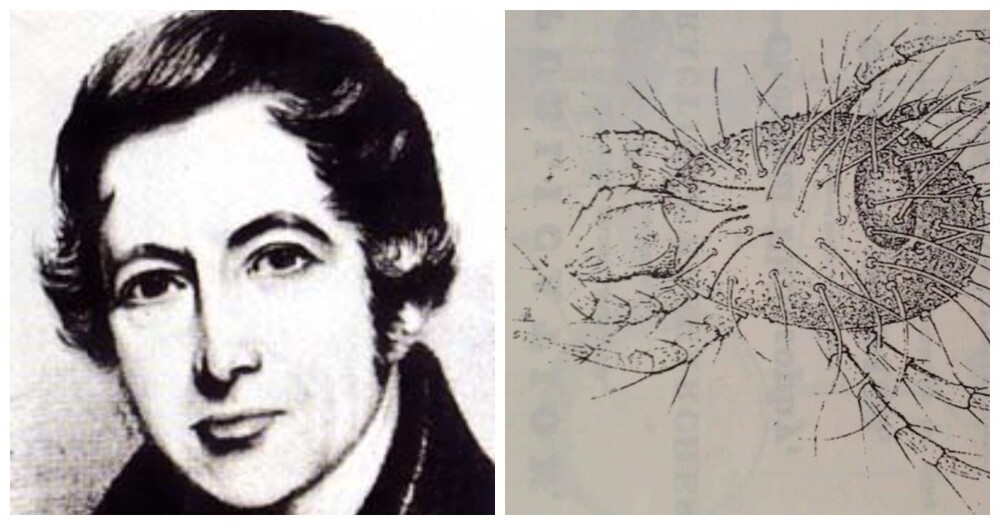
He built the most modern laboratory in his country house in England and carefully studied all the materials on this topic published by researchers from different countries. 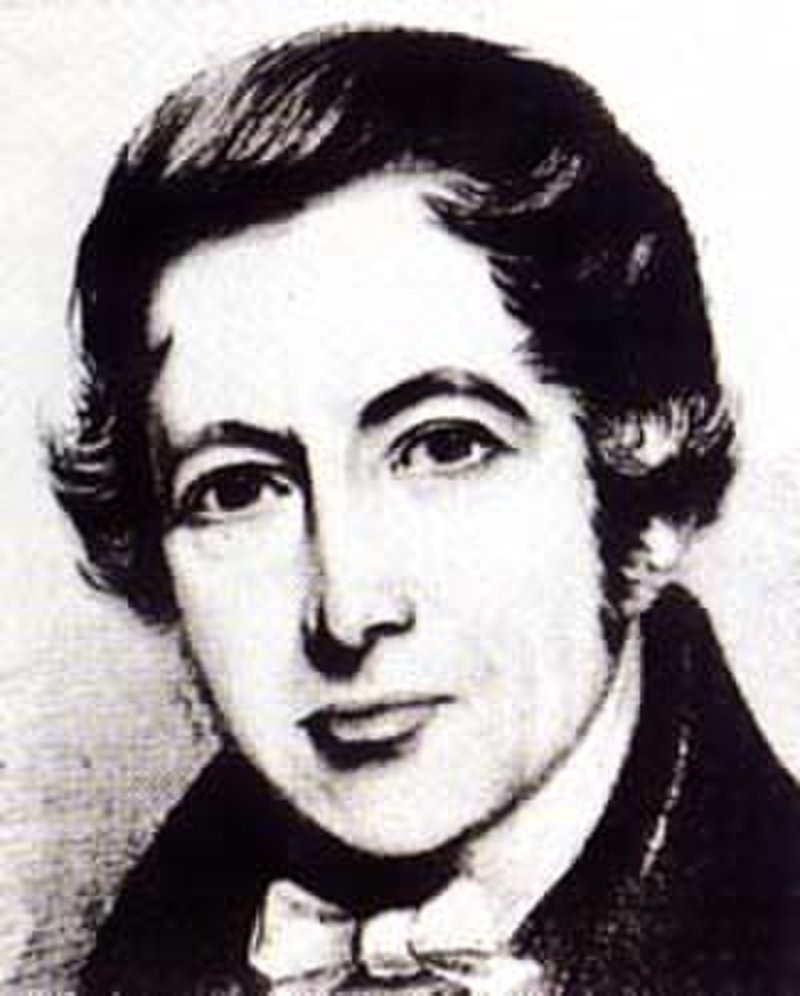
Andrew Cross
In 1837, he began an experiment to see if he could grow crystals using a weak electric current. He stocked up on lava stone, which was considered a kind of miracle, since all 4 elements took part in its creation - water, fire, earth and air. I prepared a special chemical mixture, a source of electricity and prepared to wait. Days passed after days, and Cross began to despair. However, 28 days into the experiment, he noticed something strange. Instead of crystals, the liquid contained many insects that looked like some kind of ticks or tiny fleas. 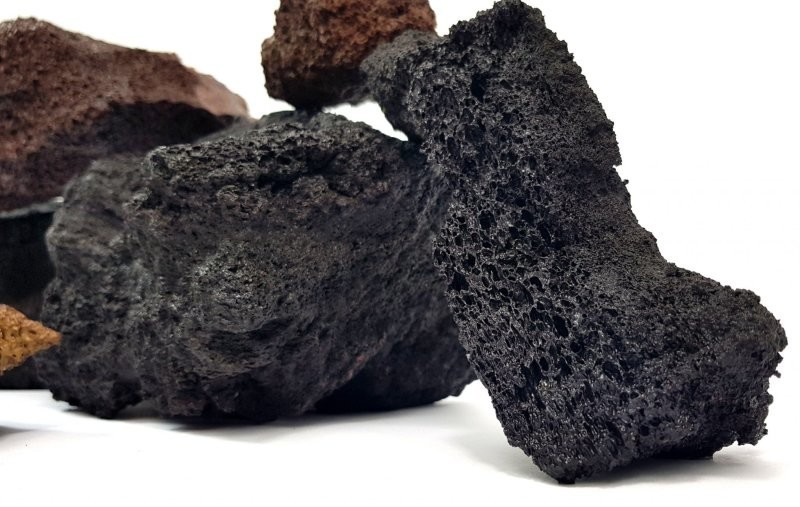
Lava stone
He naturally assumed that the stone or liquid used in the experiment was contaminated with microscopic eggs. Electrical stimulation was supposed to induce hatching. But, oddly enough, not only the eggs, but also the shells were not visible after the emergence of adults. No insects or eggs were found in containers containing the same liquid source.
Equal to God? 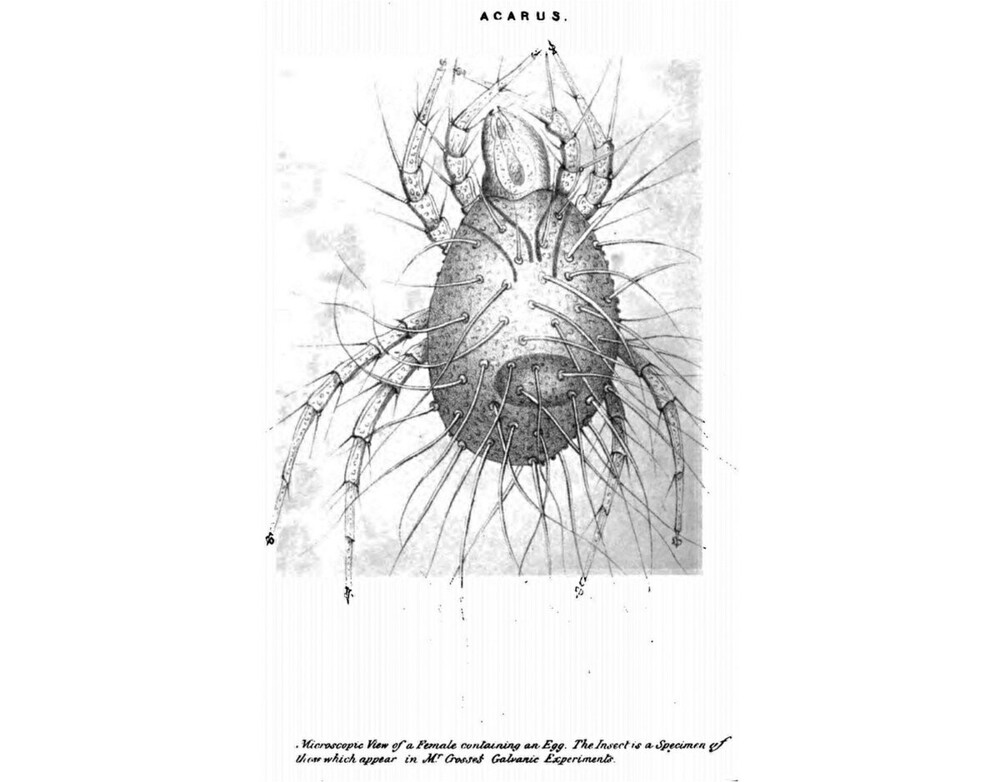
Andrew was overcome with curiosity. And for cleanliness, he repeated the experiment using sealed containers. And I got the same result.
He tried to repeat the experiment using various toxic liquids that were unfavorable to life. In most of these experiments, tiny insects appeared.
It seemed as if new life had been created from stone, a few chemicals and a weak electrical charge.
Pondering the meaning of it all, he approached the London Electrical Society to see if they could explain the meaning of these seemingly impossible experimental results.
Responsiveness 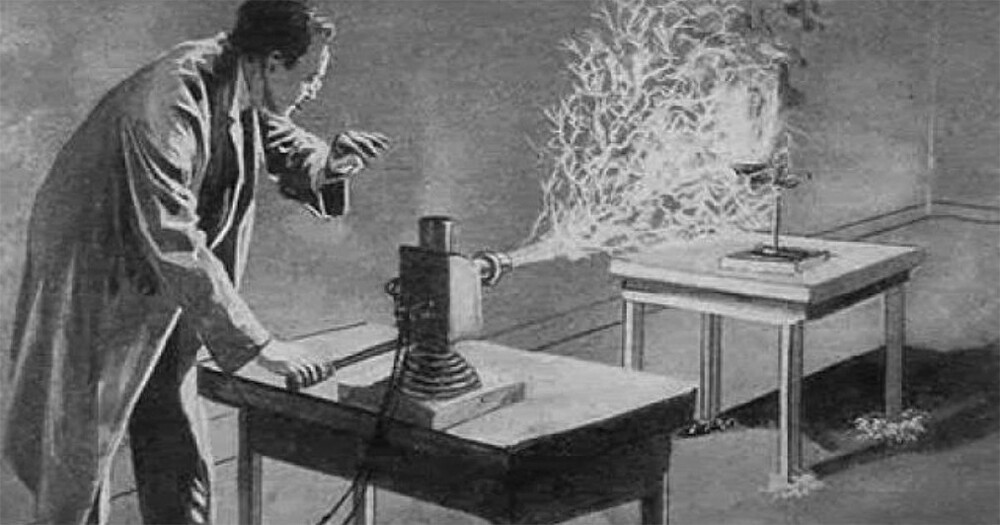
Newspapers quickly picked up the story, calling the new insect Acarus Crossii, and sent the population into a frenzy. They called Cross a blasphemer, a devil who dared to equal God by creating life out of nothing. Subsequently, people came to his neighborhood to ridicule his work, damage property, and even attempted to perform exorcisms at his home.
The poor guy tried to justify himself with his own ignorance. But, interestingly, the attempts of other researchers led to a similar result. True, they were not criticized as fiercely as Cross.
In addition to the guardians of religion, ordinary people also attacked him, claiming that the tiny eggs were previously placed in the liquid. And that Cross is a liar, deliberately misleading the public.
In the end, the researcher became a forced recluse, practically a prisoner in his own home. He rarely managed to appear in public without being attacked and condemned by others.
He died in 1855 without ever knowing what exactly he had discovered. And without understanding the general aggression that became a response to his innocent experiment.
The Mystery of Acarus Crossii 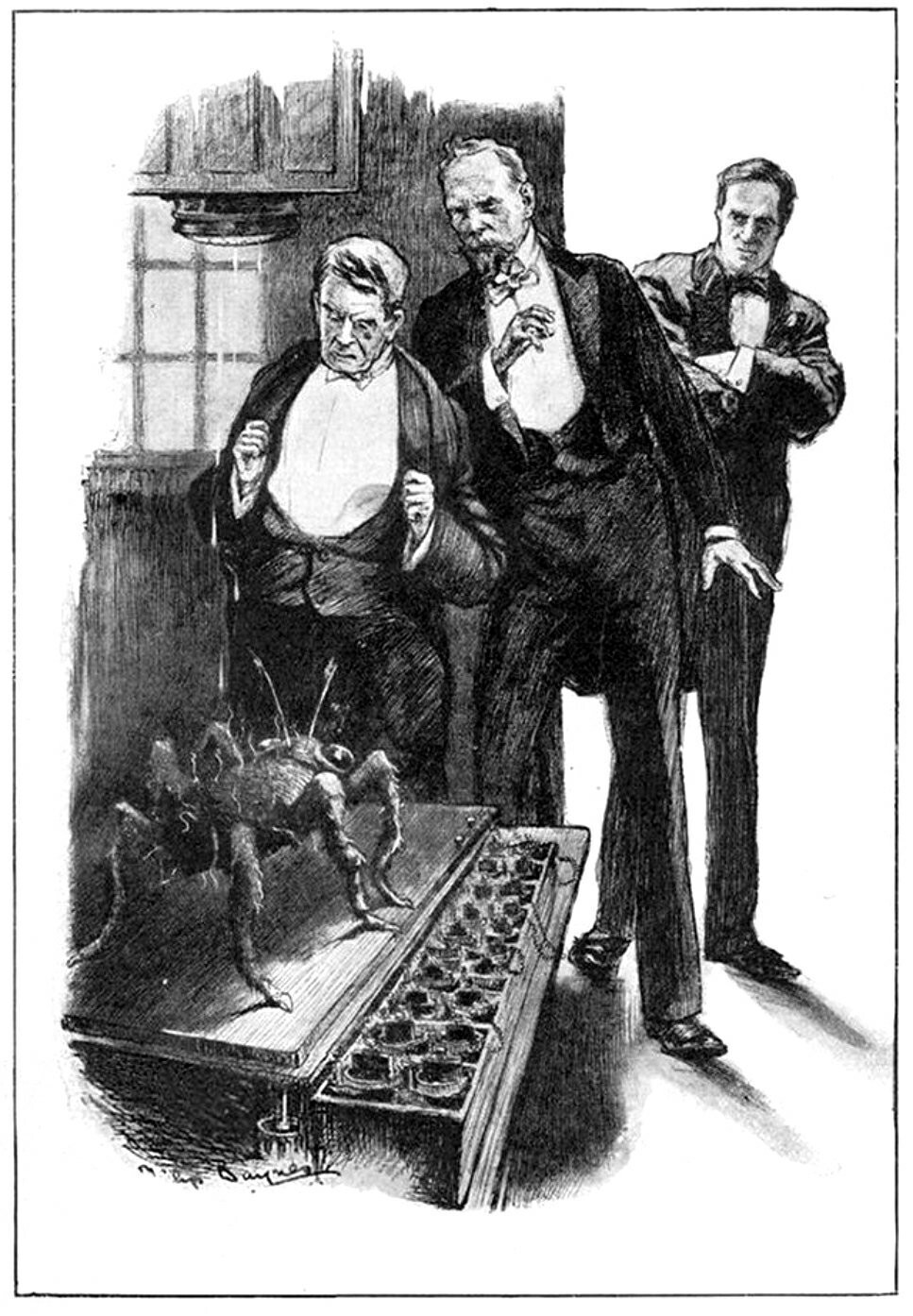
Illustration by Philip Baines for the story "The Electric Vampire" by F.H. Power
The problem was never solved. To this day, it is unknown what exactly Andrew Cross discovered. If he opened it at all. None of the later researchers tried to repeat his experiments. What exactly originated in the test tubes of a small English laboratory may remain unknown.






























